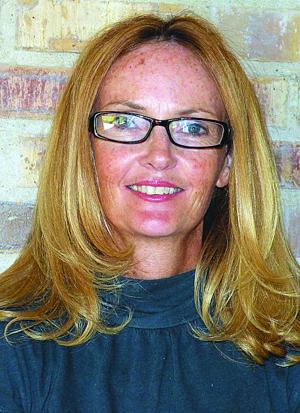By Lisa Mitchell-Bennett, Special to the Star
This past year has proven to be the year of hospitality, extended by my community and in my own home. I’ve witnessed numerous people giving of their time and resources to welcome complete strangers with compassion and care. People from diverse backgrounds have come together to form a community that “welcomes the stranger, the visitor”, including the poor, traumatized, fearful and homeless, by feeding, housing, transporting, clothing, providing medical care, housing and simply listening to people in need. I’ve had guests in my home I never expected or planned for, who have enriched my life and taught my family so much.
All of this has caused me to reflect on the practice of hospitality, and its relationship to our physical and mental health. Hospitality is a concept valued by virtually all cultures and religions. Louis, Chevalier de Jaucourt describes hospitality in the Encyclopedia as “the virtue of a great soul that cares for the whole universe through the ties of humanity”. The more practical dictionary definition is, “The relationship between a guest and a host, wherein the host receives the guest with goodwill, including the reception and entertainment of guests, visitors or strangers.” The neat thing about this “great soul ”and “goodwill” is that any of us can extend it and receive it. It takes no special skill or talent, education or even money to welcome and care for someone. As cliché as it sounds, the truth is that when we are generous with our welcome, in even the smallest way, it benefits us as much or more than the person receiving.
So often we associate hospitality with perfection—a perfectly clean house, a perfectly prepared meal, with the perfect guests. In our society, we are hesitant to provide hospitality without a lot of preparation, and usually to people just like us. We limit ourselves to our family or close friends. I know I used to fret about inviting people over if my home was messy, worrying more about guests’ impression of my (lacking) culinary, housekeeping or decorating skills, than just enjoying their company.
At some point, I had the epiphany that I was missing out on so much humanity and community with this attitude. Being “hospitable”, reaching out to a new person, a different person, a lonely person, someone much younger or older, from another culture, a stranger, or someone in need, enriches our lives and is a display of the best side of our humanity. In many cultures, traditions and especially in more remote regions, providing a meal and bed to a stranger passing through is a given. It is the stuff of the greatest stories and adventures, from The Bible, the Torah and Qur’an, to The Lord of the Rings and Star Trek!
Andrea Rudnick, a long time Brownsville resident and recently retired BISD teacher, has participated along with a large and growing volunteer group “Team Brownsville”, which provides meals and hospitality to refugees living on the international bridges, at bus stations and local shelters. “We treat the asylum seeking people like family, with love, care, understanding and respect. As we extend hospitality to them, we enrich our lives with the satisfaction that comes from knowing that we’ve made a difference in someone’s life, that our presence has made a positive impact, looking toward their future. We are also enriched by witnessing their resilience and learning about new cultures.”
In fact there is even some science behind the benefits of welcoming and connecting with others, by sharing living space, time and meals with others. After all, isolation and loneliness are risk factors for many health problems and social support is at least a partial cure. “When you live alone, you’re at a higher risk for memory decline, depression, heart disease, diabetes, arthritis, and stress,” says Dr. Erin Stevens, a geriatrician and palliative care physician at Harvard-affiliated Massachusetts General Hospital. “But having someone in the home is socially and mentally stimulating, and it may help prevent health problems.”
In a three-month longitudinal study of a peer-support intervention for dialysis patients, giving and supporting peers was associated with lower levels of depressive symptoms over time (Brown, Perry, and Swartz, 2003). New evidence is also gathering to support the idea that health is boosted when the individual feels needed or has opportunities to give to others, regardless of their condition or age.
In a study of elderly widows, those who had opportunities to serve and help other widows in their time of need, by sharing a meal, a listening ear, providing hospitality—had reduced levels of depression and cognitive decline as compared to those who didn’t. It may be that the best way to support other people is to provide them with an opportunity to feel useful—so they can feel that they are making an important contribution to others. Generous hospitality in the broadest sense is good for all of us. It allows us to expand our circles, welcome the stranger, share our time and resources, and be healthier humans, because TuSalud ¡Si Cuenta! (Your Health Matters!).





